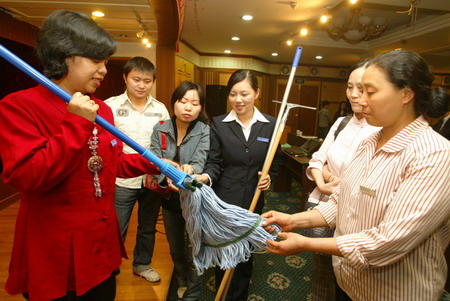Behind the Scenes: The Life and Challenges of India’s Domestic Workers

India’s economic and social fabric is intricately woven with the labor of domestic workers. From sweeping the floors to taking care of children, their work is fundamental to the functioning of millions of Indian maid (印傭). This article aims to shed light on the often invisible challenges faced by domestic workers in India.
Unseen & Unprotected
With the changing landscape of urban India, the demand for domestic workers has surged. Yet, the majority of these workers remain unprotected by labor laws. Despite contributing significantly to the economy, they are often not recognized as formal employees, leaving them without essential benefits such as minimum wages, insurance, and paid leave.
India’s informal economy is vast, and it is within this sector that domestic work largely falls. For many, it is their first job, undertaken at a very young age. The lack of legal protection makes them vulnerable to exploitation and abuse. Without the security of a legal framework, they’re often at the mercy of their employers.
Hardships and Struggles
The life of a domestic worker in India is fraught with hardships. Long hours, often without a day off, are the norm rather than the exception. The work is physically demanding, with little regard for age or health. Many work in multiple households to make ends meet. The compounding hours of duty leave little time for rest, education, or any form of personal growth.
Domestic work in India is also rife with open discrimination. Workers routinely face verbal and sometimes physical abuse. The lack of a formal employer-employee relationship makes it difficult for them to seek recourse. The inherent imbalance of power frequently means that their grievances go unaddressed, and the cycle of abuse continues.
The Challenge of Changing Mindsets
One of the most ingrained challenges is the societal view of domestic work. It is often undervalued and associated with lower social status. The workers themselves are typically from marginalized communities, facing layers of discrimination. There is a pervasive and harmful narrative that domestic work is unsophisticated and not real work, which undermines the dignity of the labor involved.
Changing these mindsets is as challenging as changing the laws that govern them. Education and awareness are crucial in addressing this issue. Empathy and understanding from the larger society can pave the way for better working conditions for these workers.
Advocacy and Empowerment
Several organizations in India are working to empower domestic workers. Through advocacy, they seek to influence policy changes that would extend labor protections to this vital workforce. Public campaigns and awareness programs aim to highlight the workers’ plight and promote fair treatment.
Training programs are another avenue through which workers can be empowered. Skills development not only enhances their capabilities but also positions them for better working conditions. It enables them to demand a more decent work environment and negotiate for fair wages.
Conclusion
The challenges faced by domestic workers in India is a multi-layered issue that demands attention from both the government and society at large. In recognizing the inherent value of their work and establishing fair labor practices, we can work towards creating a more just and equitable society. The efforts of activists and advocates combined with changes in policy can contribute to better lives for the millions of workers behind the scenes in India’s homes. By amplifying their voices and addressing their struggles, we move one step closer to a society that truly values all forms of labor.


